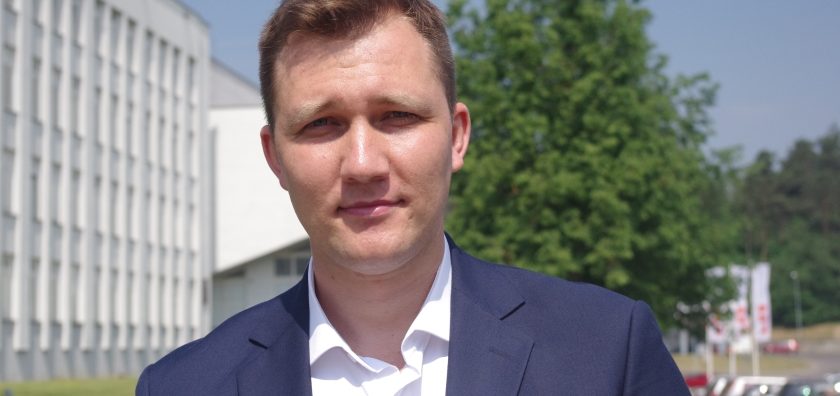Sveikiname
Doktorantūra
Artūrą Jurgelevičių (Ekonomikos ir verslo fakultetas), 2019 m. gegužės 24 d. apgynusį disertaciją „Žmogiškojo kapitalo dedamųjų įtakos Europos šalių kūrybinei ekonomikai vertinimas“ (ekonomika, S 004).
ŽMOGIŠKOJO KAPITALO DEDAMŲJŲ ĮTAKOS EUROPOS ŠALIŲ KŪRYBINEI EKONOMIKAI VERTINIMAS
Žmogiškojo kapitalo vaidmuo, neabejotinai, yra reikšmingas veiksnys šiuolaikinės ekonomikos plėtroje. Tačiau besikeičianti ekonomikos struktūra verčia analizuoti žmogiškojo kapitalo reiškinį skirtingais požiūriais, būdais ir metodais. Kūrybinės ekonomikos sąlygomis žmogiškojo kapitalo plėtra tampa dar labiau reikšminga prielaida, užtikrinanti ekonomikos pažangą. Disertacijos tikslas yra išnagrinėjus mokslinius požiūrius į žmogiškąjį kapitalą ir jo dedamąsias, apibrėžus kūrybinės ekonomikos koncepciją, sudaryti žmogiškojo kapitalo dedamųjų įtakos kūrybinei ekonomikai vertinimo modelį ir jį aprobuoti Europos šalyse. Disertacijoje buvo sukonkretinta žmogiškojo kapitalo samprata ir išplėtota žmogiškojo kapitalo sandara, apimanti kiekybinę, kokybinę ir vertybinę žmogiškojo kapitalo dedamąsias. Remiantis žmogiškojo kapitalo dedamųjų ir kūrybinės ekonomikos tarpusavio sąsajų teorinėmis prielaidomis, darbe pasiūlytas žmogiškojo kapitalo dedamųjų įtakos šalių kūrybinei ekonomikai vertinimo modelis. Empiriniu tyrimu įvertinta žmogiškojo kapitalo dedamųjų įtaka Europos šalių kūrybinei ekonomikai 2015-2017 m. laikotarpiu. Atskleisti žmogiškojo kapitalo dedamųjų įtakos skirtumai ne tik šalių kūrybinei ekonomikai, bet taip pat siejant su ekonomine plėtra apskritai. Disertaciniame darbe nustatyta, kad vertybinė žmogiškojo kapitalo dedamoji yra labiausiai reikšminga kūrybinės ekonomikos plėtrai kitų dedamųjų atžvilgiu.
VALUATING THE IMPACT OF HUMAN CAPITAL‘S COMPONENTS ON CREATIVE ECONOMY IN EUROPEAN COUNTRIES
The role of human capital is undoubtedly a significant factor in the development of modern economy. However, the changing economic structure forces us to analyze the phenomenon of human capital in different ways, approaches and methods. In the creative economy, the development of human capital is becoming an even more important precondition for economic progress. The aim of the dissertation is to analyze the scientific approaches to human capital and its components by defining the concept of creative economy, to form a model for assessing the impact of human capital components on the creative economy and to approve it in European countries. The thesis defined the conception of human capital and developed the structure of human capital, comprising quantitative, qualitative and value human capital components. Based on the theoretical assumptions of the interrelations between human capital components and the creative economy, a model for assessing the impact of human capital components on the creative economy of countries is proposed. The Empirical study evaluates the impact of human capital components on the creative economy of European countries in 2015-2017 period. Differences in the influence of human capital components on the creative economies is being analyzed. In the dissertation it is determined that the value of human capital is the most important component for the development of creative economy regarding to other components.
